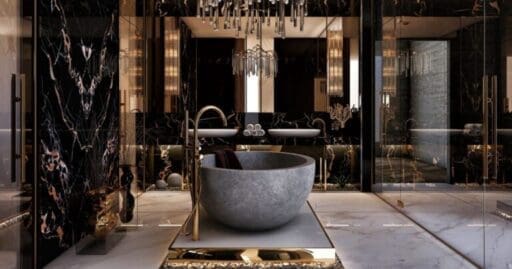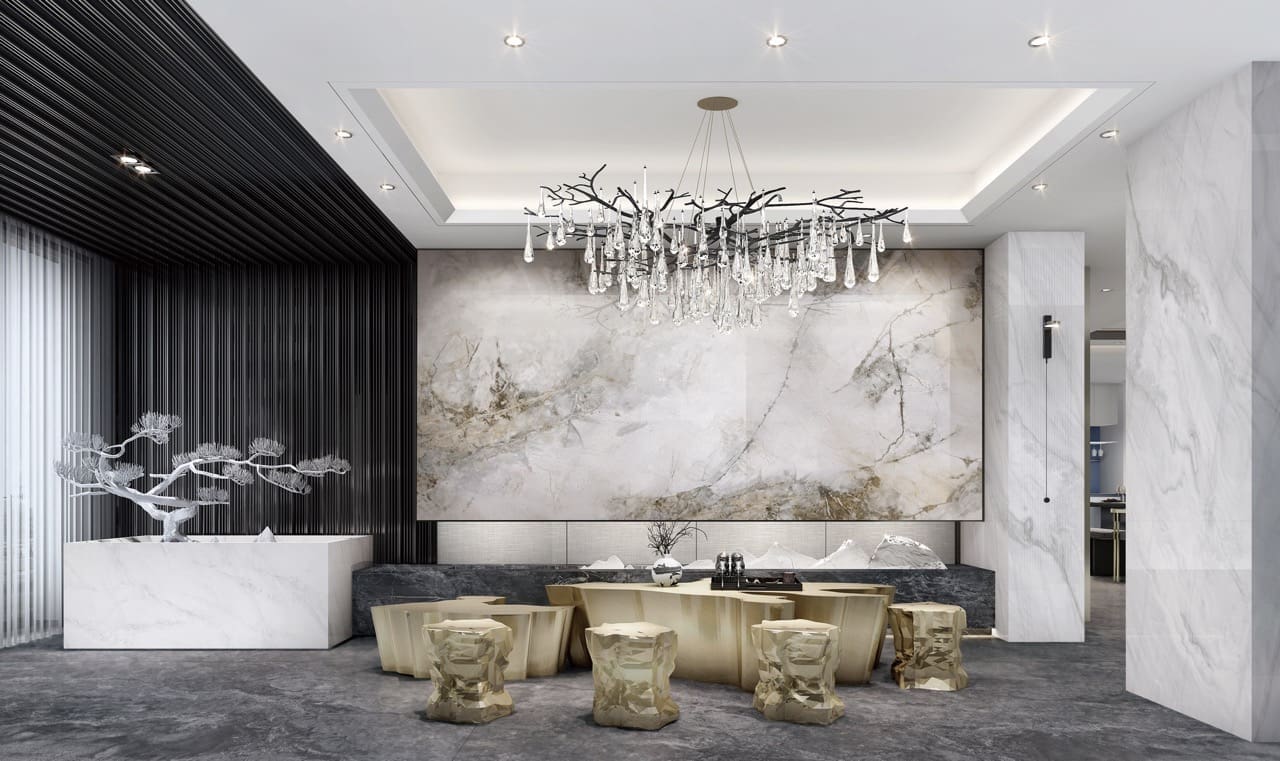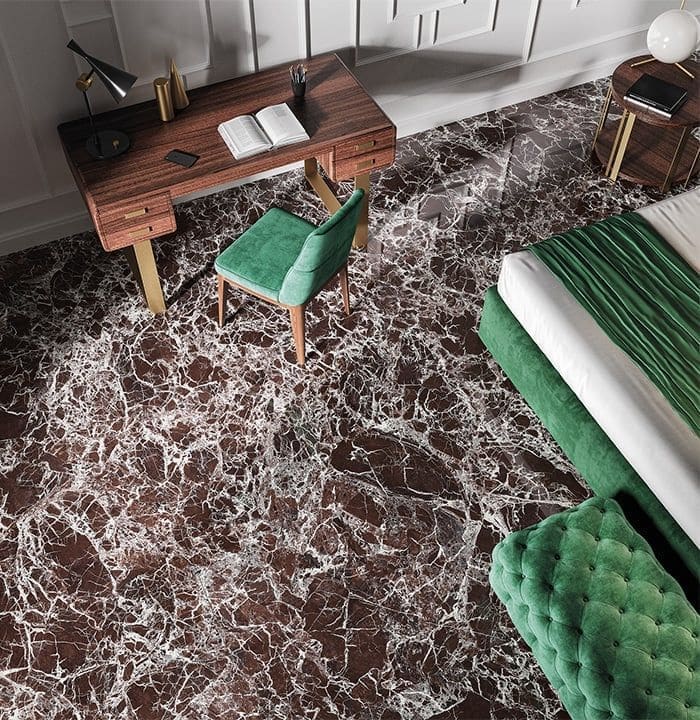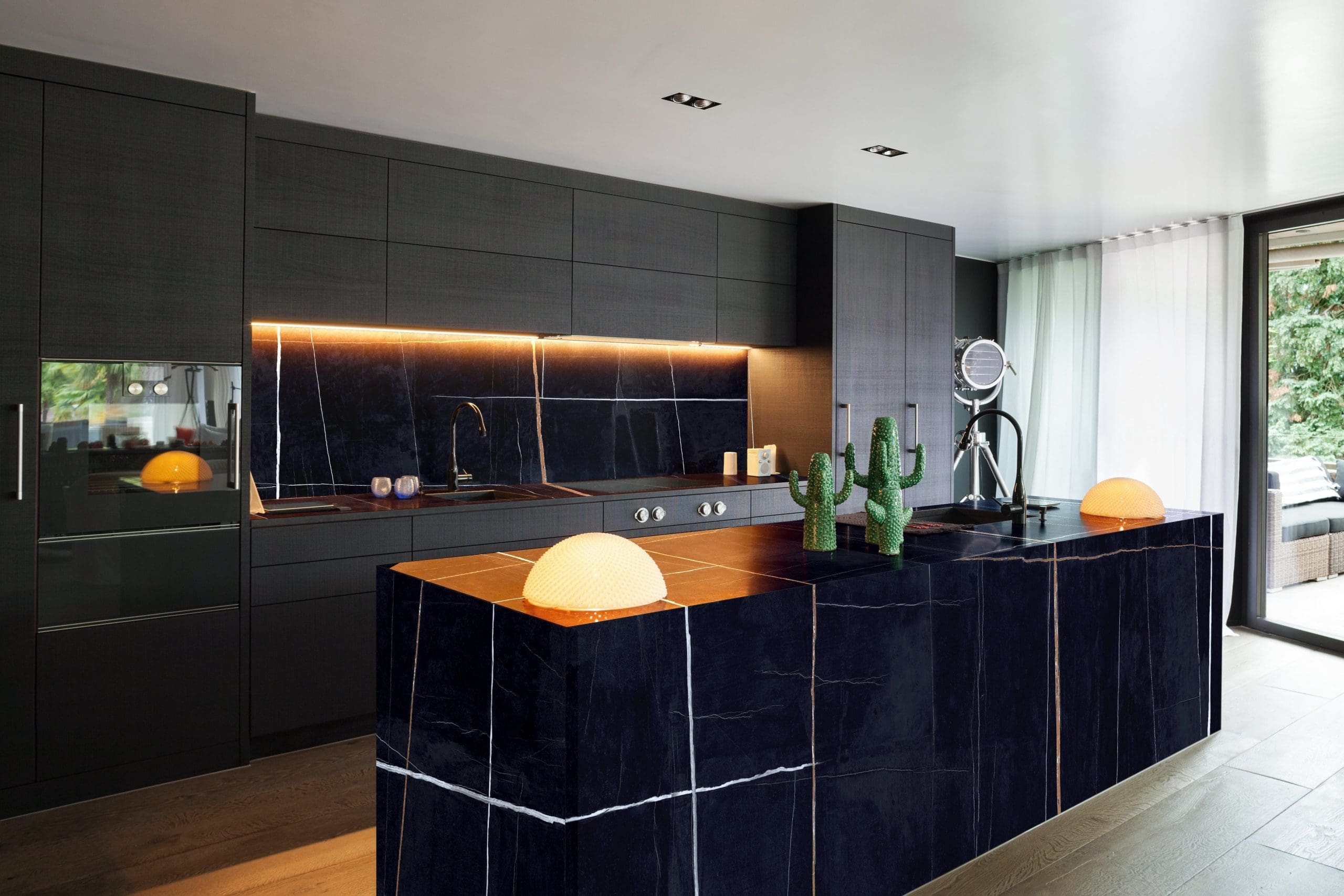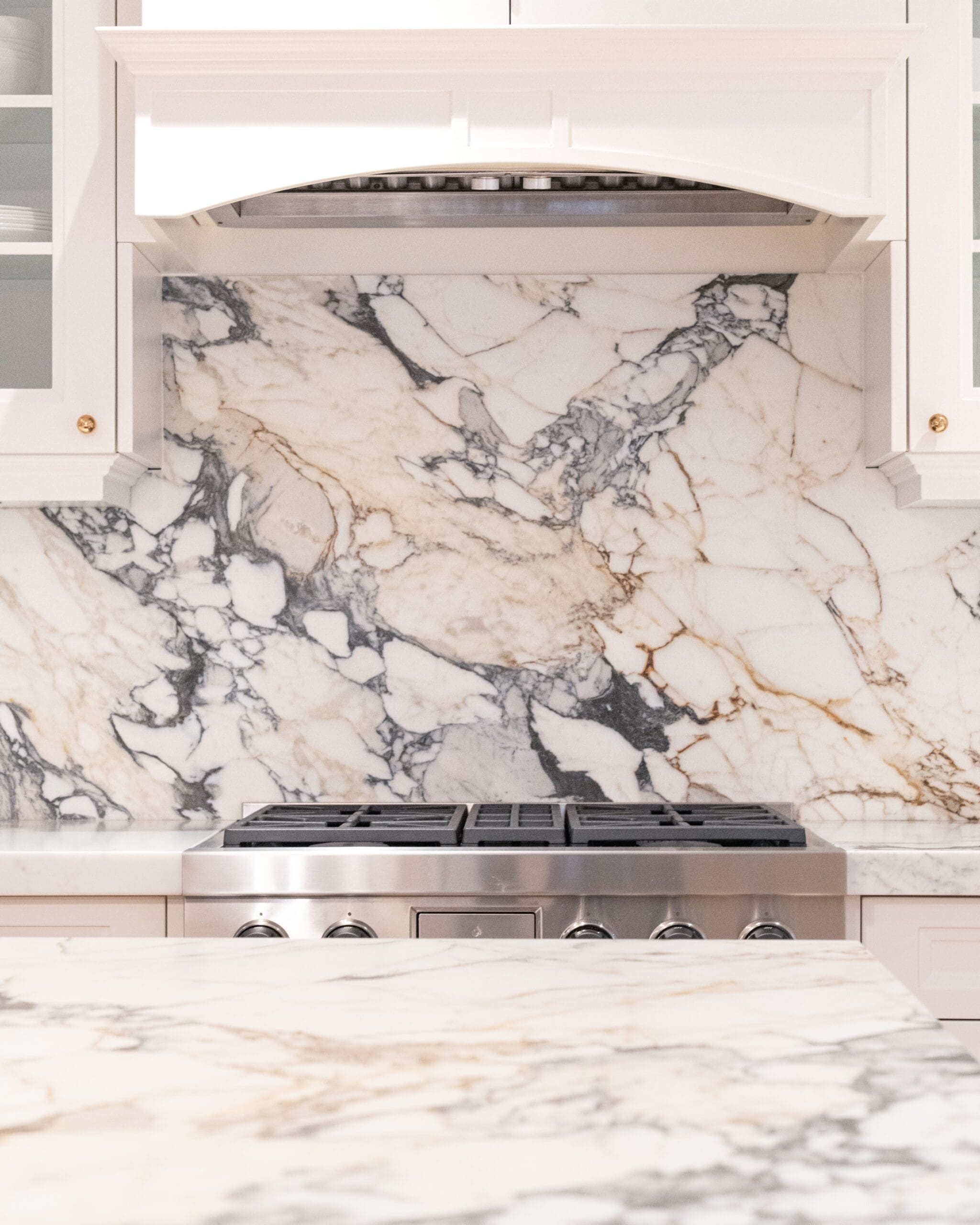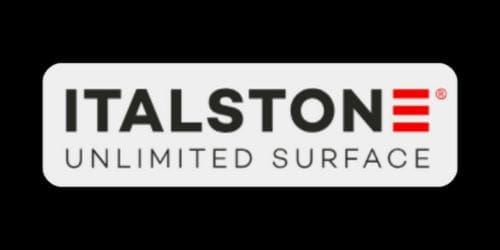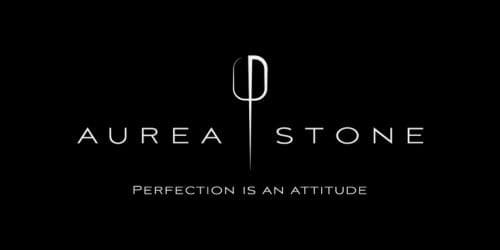When selecting countertop materials, marble and quartz are two popular options. Each offers distinctive qualities and considerations. In this article, we will provide a clear and unbiased comparison of these two materials, helping you make an informed decision based on your specific needs and preferences. We’ll discuss their appearance, durability, maintenance, and cost to assist you in choosing the ideal material for your space.
What is Marble?
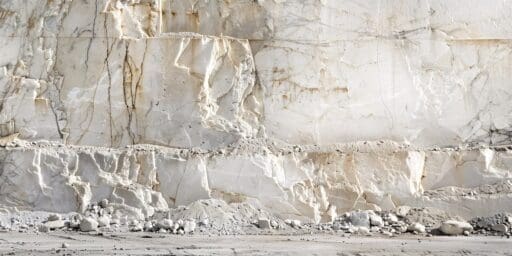
Marble is a natural stone known for its classic beauty and distinctive veining. Each piece of marble is unique, making it a great choice if you want something truly one-of-a-kind in your home. This stone has been used for centuries in buildings and sculptures, like the Parthenon in Greece and the Taj Mahal in India, and is still found in places like Italy, Greece, and Turkey. Marble forms when limestone is subjected to heat and pressure over millions of years, creating its characteristic patterns. While marble is undeniably beautiful, it does need some care due to its porous nature, which can make it prone to staining. If you appreciate its natural look and are prepared to maintain it, marble can add a touch of timeless elegance to any space.
What is Quartz?

Quartz is an engineered stone, and it offers versatility and durability that natural stones often can’t match. Found globally, but typically manufactured with a mix of natural quartz and resins, quartz can be customized to mimic the look of other stones, or stand out with its own unique patterns and colours. It’s non-porous, making it incredibly hygienic and resistant to stains, which is why it’s a favourite for kitchens and bathrooms. Unlike marble, quartz is highly durable and requires little maintenance, making it ideal for busy households. Additionally, some quartz products incorporate recycled materials, making it an eco-friendly choice for those who are environmentally conscious.
Nano-Ink Quartz: A Superior Engineered Stone
Nano-ink quartz is a cutting-edge material that offers significant improvements over traditional quartz. These enhancements are achieved through the use of innovative technology, making nano-ink quartz a superior choice for those seeking a durable, beautiful, and easy-to-maintain surface material.
It features:
- Enhanced durability: More resistant to scratches, stains, and chips.
- Vibrant colours: A wider range of deeper, more intense hues.
- Lifelike patterns: Realistic designs that mimic natural stone.
- Translucent beauty: Some varieties offer a unique, translucent quality.
Interested in exploring our selection of marble or quartz? Visit our showroom or contact us to see our full range of options.
Pros and Cons of Marble and Quartz
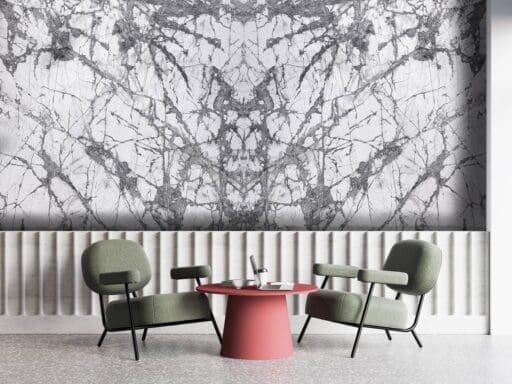
Pros and Cons of Marble
Pros:
- Natural Beauty: Marble offers unparalleled natural elegance with unique veining patterns.
- Timeless Appeal: Marble’s classic look never goes out of style and adds value to any home.
- Heat Resistance: Marble is naturally resistant to heat, making it suitable for kitchen countertops.
Cons:
- High Maintenance: Requires regular sealing and careful cleaning to prevent staining and etching.
- Susceptible to Scratches: Marble can scratch more easily than harder surfaces.
- Higher Cost: Marble is typically more expensive, especially for high-end varieties.
Pros and Cons of Quartz
Pros:
- Durability: Quartz is resistant to scratches and stains, making it ideal for high-traffic areas.
- Low Maintenance: Non-porous and easy to clean, quartz doesn’t require sealing or special cleaners.
- Consistency: Offers uniform patterns and colours, allowing for a consistent look throughout your space.
Cons:
- Engineered Product: Lacks the natural, unique beauty and depth that comes with real stone like marble.
- Limited Heat Resistance: Quartz can be damaged by excessive heat, so using trivets or pads is recommended.
- Less Value Over Time: While quartz is durable, it may not add as much value to your home as natural marble.
Ready to make a decision? Browse our marble and quartz collections online or visit our showroom to see them in person.
Marble vs Quartz – The Ultimate Comparison
| Property | Marble | Quartz |
| Appearance | – Natural stone with unique veining and colour variations.
– Each slab is unique. |
– Engineered stone with consistent patterns and colours.
– Offers a uniform appearance. |
| Durability | – Prone to scratches, stains, and etching.
– Requires careful handling and protection. |
– Highly durable and resistant to scratches and stains.
– Ideal for high-traffic areas. |
| Maintenance | – High maintenance.
– Requires regular sealing and immediate cleanup of spills. |
– Low maintenance.
– Non-porous and easy to clean, does not require sealing. |
| Cost | – Generally more expensive, especially for rare varieties. | – More affordable. |
| Best Use | – Ideal for areas where aesthetics are prioritized, such as countertops, vanities, and feature walls. | – Suitable for kitchens, bathrooms, and high-traffic areas where durability is key. |
Marble vs Quartz Appearance
Marble: Nature’s Natural Beauty
Marble, a natural stone formed over millions of years, boasts a unique blend of beauty and durability. Its signature feature is its distinctive veining patterns, which vary widely from slab to slab. Marble comes in a rich palette of colours, from classic white to dramatic black, with shades of gray, pink, green, and yellow. Its translucent quality can add a touch of elegance and depth to any space.
Quartz: Engineered Consistency
Quartz, a man-made material, offers a more consistent appearance than marble. It’s available in a diverse range of colours and patterns, including those that mimic natural stone. Quartz’s sleek finish provides a modern, polished look.
Marble vs Quartz Durability, Lifespan and Maintenance: What to Expect
Quartz: Built to Last
Quartz is known for its exceptional durability. Its non-porous surface resists stains, scratches, and heat, making it a low-maintenance option that’s perfect for high-traffic areas like kitchens and bathrooms. Quartz countertops can last 20-50 years, but with proper care, quartz can easily outlast these periods. A simple wipe with soap and water is usually all it takes to keep quartz looking pristine, making it an excellent choice for busy households.
Marble: Classic, But Needs Care
Marble, while durable, is more prone to staining and etching due to its porous nature. It requires regular sealing and careful maintenance to protect its surface from spills and scratches. With proper care and maintenance, marble countertops can last 20-50 years. However, some well-maintained marble surfaces in historical buildings have lasted for centuries.Despite these needs, marble’s natural beauty often outweighs the extra care required, especially in spaces where luxury is a priority.
Want to learn more about maintaining your marble or quartz surfaces? Call us to speak to our specialists today.
Marble vs Quartz Cost Comparison: What’s the Investment?
Marble is typically more expensive than quartz, particularly if you opt for rare varieties like Calacatta Gold or Borghini. The price reflects its status as a luxury material and the skilled labor required for installation. While quartz also falls into the premium category, it is generally more affordable. Its high-end appearance combined with a lower price point makes it a desirable choice for those seeking a stylish countertop or backsplash without exceeding their budget.
Environmental Impact: How Green Are They?
Marble is a natural product, quarried from the earth. This process can be environmentally taxing, involving significant energy use and landscape disruption. However, marble is a long-lasting material that can be recycled and repurposed, which helps mitigate its environmental impact over time.
Quartz’s manufacturing process involves binding natural quartz with resin, which requires energy and generates some waste. However, many quartz producers are now focusing on sustainability, offering recycled quartz options and improving production efficiency. Quartz’s durability also means it has a long lifespan, reducing the need for frequent replacements.
Applications and Versatility: Where They Shine
Best Uses for Marble
Marble is ideal for spaces where its beauty can be appreciated without heavy wear and tear. It’s commonly used in:
- Countertops: Marble has long been a popular choice for kitchen and bathroom countertops, adding a touch of luxury and elegance. Its natural beauty and veining patterns create a unique and sophisticated look.
- Flooring: Marble floors can add a timeless and luxurious feel to living rooms, dining rooms, and entryways. Their durability and resistance to stains make them a practical choice for high-traffic areas.
- Sculptures and artwork: Marble’s ability to be carved and polished makes it a popular material for sculptures, statues, and other artistic creations. The softness and translucent quality of marble allows for intricate designs and realistic appearances.
- Architectural elements: Marble can be used for various architectural elements, such as staircases, fireplaces, columns, and decorative accents.
- Wall Cladding: Marble creates stunning feature walls, backsplashes, and fireplace surrounds.
Quartz: The Versatile Option
Quartz’s durability and low maintenance make it suitable for a wide range of applications, including:
- Countertops: Quartz is a popular choice for modern kitchens and bathrooms due to its durability, low maintenance, and wide range of colors and patterns. Its non-porous surface resists stains and bacteria, making it a practical option. Resistant to stains, scratches, and heat.
- Bathroom Surfaces: The low maintenance and moisture resistance of quartz make it ideal for vanities, shower walls, and backsplashes.
- Backsplashes: Quartz backsplashes offer a stylish and practical way to protect walls from splashes and stains. Their durability and resistance to moisture make them a great choice for kitchens and bathrooms.
- High-Traffic Areas: Due to its durability and scratch resistance, quartz is great for feature walls or wall cladding in commercial spaces and busy homes.
Both materials have their strengths, with marble excelling in areas where natural beauty and elegance are paramount, while quartz shines in applications requiring durability and low maintenance. The choice between them often depends on the specific requirements of the space and personal preferences.
Considering marble or quartz for your countertops or bathroom surfaces? Browse our application gallery to see our products in action and get inspired!
Popular Marble Products from Better Marble
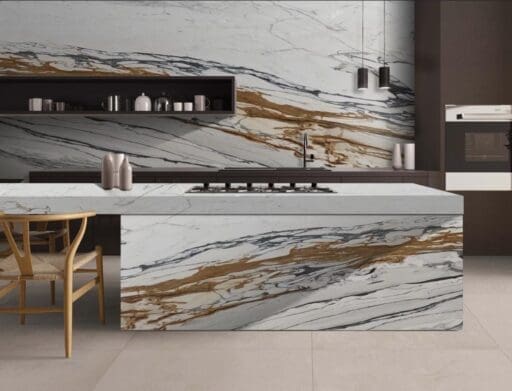
At Better Marble, we offer a curated selection of premium marble products, each chosen for its quality and aesthetic appeal.
A Look at Our Best-Selling Marble
Our top-selling marble products include:
- Bianco Carrara: A classic and timeless stone, celebrated for its soft white background with subtle grey veining
- Calacatta Picasso Gold: Perfect for bold, luxurious designs with a combination of black, gold, and grey veins Adds warmth and sophistication with its gold veining.
- Calacatta Viola Gold: Ideal for those looking to make a bold statement with its striking purple and gold veins.
Unique Marble Varieties We Offer
- Borghini Marble: Known for its bold, luxurious veining.
- Viola Marble: Offers a dramatic, rich look for standout spaces.
Visit our showroom to see these stunning marble options in person!
Choosing Between Marble and Quartz
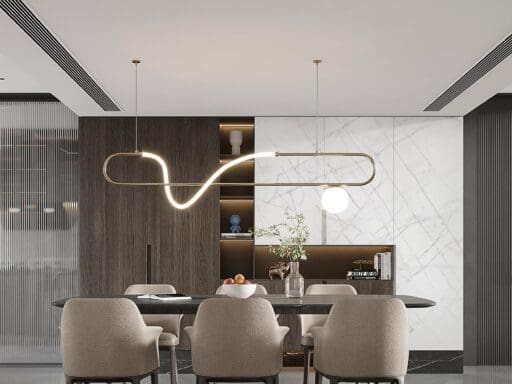
Consider the look you want to achieve, how much maintenance you’re willing to handle, and your budget. Marble is ideal for those who prioritize natural beauty and don’t mind the extra care, while quartz is perfect for those who want a stylish, durable surface with minimal upkeep.
Get Expert Advice
At Better Marble, our experts are here to help you navigate your options and find the best material for your home. Visit our showroom or contact us for personalized guidance tailored to your needs.
Need help deciding? Speak with one of our experts today to find the perfect surface for your project.
Conclusion
In the marble vs. quartz debate, there’s no one-size-fits-all answer. Both materials offer unique advantages, and the best choice depends on your lifestyle, design preferences, and budget. Whether you’re drawn to the natural elegance of marble or the practicality of quartz, either choice will enhance your home and add value for years to come.
Still undecided? Contact us for a consultation and let us help you create the space of your dreams with the perfect surface material.
FAQs
Q: Is marble more expensive than quartz?
A: Yes, marble is generally more expensive, particularly rare varieties. Quartz offers a more budget-friendly option with similar aesthetic appeal.
Q: Which is more durable: marble or quartz?
A: Quartz is more durable and resistant to scratches and stains, making it ideal for high-traffic areas like kitchens and bathrooms. Marble, while durable in its own right, is more prone to etching and scratching and requires regular maintenance to keep it looking its best.
Q: Can quartz replicate the look of marble?
A: Yes, quartz can replicate the appearance of marble with similar veining and colours, offering a marble-like look with the added benefits of durability and lower maintenance.
Q: How do I maintain my marble or quartz countertops?
A: Marble requires regular sealing to prevent stains and etching, and you should clean up spills promptly. Quartz, on the other hand, is non-porous and easy to maintain with just mild soap and water. It doesn’t require sealing, making it a lower-maintenance option.
Q: How often do I have to seal marble?
A: Marble countertops typically need to be sealed every 6 to 12 months, depending on the type of marble and how heavily it’s used. Regular sealing helps protect the surface from stains and etching, keeping your marble looking beautiful for longer.
Q: Where can I buy high-quality marble or quartz near me?
A: Better Marble offers a wide range of premium marble and quartz products. Visit our showroom or contact us to explore the best options for your space. Our team of experts is ready to help you find the perfect material for your project.
Want to explore our range of products? Browse our product catalogue and find the perfect material for your countertops and flooring.


